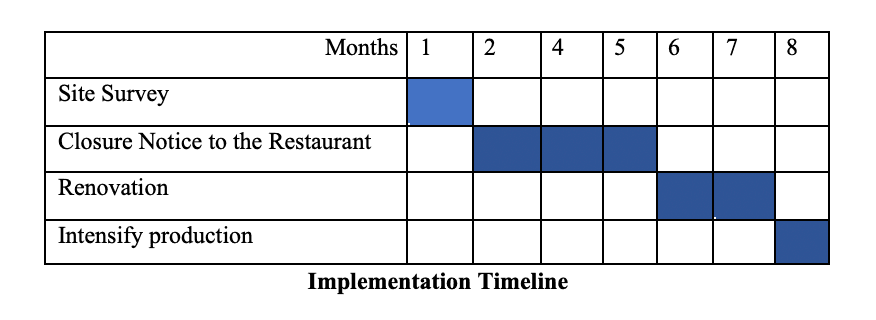Introduction
The Belle Meade Plantation is a historic plantation established in 1807. It started out as a horse-breeding and advanced to a winery. The plantation is considered a historical attraction in Nashville but has been affected by numerous changes that necessitated changes in its operations. This paper focuses on the evolution of Belle Meade Plantation, a situation analysis, identification of its problem, and evaluation of probable solutions.
Situation Analysis
The strengths of the Belle Meade Plantation include its historical value. The plantation is a historical location for the Nashville horse breeding and racing activities of the 19th century. The mansion is a tourist attraction that displays antiques. There are themed tours with a feeling of the nineteenth century that attract festivals. The winery is also used for tours and wine tasting activities. The non-profit winery is also a strength for the Belle Meade that acts as an attraction to visitors and education. It is the only non-profit winery in the U.S attracting many patrons, hence minimal marketing strategies for the plantation. There is also a high demand for Belle Meade wine, and its partnership with a local restaurant increases its revenue.
The weaknesses of Belle Meade are based on inadequate growth strategies. The winery is its sole source of capital, which reduces its profitability levels. Also, its partnership with the restaurants does not support the winery as it can sell other alcoholic products and not Belle Meade’s. Additionally, the plantation lacks adequate space for future expansion, considering the high demand for its products and services. The limited profit margins for Belle Meade limit its promotional budget to the winery website and other cheaper approaches.
Belle Meade has opportunities that could support its growth. This includes extensive use of social media platforms for advertising, including hiring brand ambassadors and sponsors for the products. Apart from one restaurant, Belle Meade could partner with other local restaurants and shops as their authorized distributors to increase the winery’s wine capacity. Belle Meade could also capitalize on the increasing interest in Tennessee’s history, horse-racing, wine, and festivals to sell and promote its products and services.
The major threat for Belle Meade is restrictive liquor regulations on on-site production that has been affected by the limited space at the plantation. It also faces competition from other enterprises in the industry and the Nashville market. New entries in the market would affect Belle Meade’s profit levels.
Assumptions
- Belle Meade cannot buy another piece of land to produce and sell their wine.
- The partnered restaurants are not willing to only sell Belle Meade’s wine.
- The liquor laws are permanent and cannot be contested or changed.
- Belle Meade only uses one social site for social media advertising.
Statement of the Problem
Belle Meade Winery is facing growth challenges due to the restrictive liquor laws, increased competition in the market, lack of enough space, and inadequate marketing strategies that limit its profitability.
Development of Alternatives
The problem of strict liquor regulations affects Belle Meade’s production capacity of wine. This is because the law only allows on-site production and storage of liquor. However, Belle Meade has limited space that cannot allow for more wine storage. This problem is, therefore, linked to the challenge of inadequate space at the Belle Meade Plantation. The challenge can be addressed through off-site production of wine and storage. This means the winery can outsource space for production and storage, allowing increased wine production to meet the market demands.
Additionally, partnerships with other local entities such as restaurants and shops as distributors for Belle Meade wine will address the capacity problem. Even though the entities cannot be considered storage space, they will allow the winery to produce more wine and reach more consumers. Alternatively, Belle Meade could construct a building on the existing space for festivals that could act as storage space. Considering the restaurant only pays rent to Belle Meade, the winery could choose to close it and use the space for storage and extend its production operations.
The problem of inadequate marketing strategies could be addressed through direct marketing strategies. This includes active marketing on different social platforms, including YouTube and Facebook. It could also sponsor local events and use traditional marketing strategies such as billboards, fliers, and brochures to sell their services.
Evaluation of Alternatives & Recommendations
Off-site production and storage of Belle Meade wine would require additional capital to rent or buy a new production unit. Currently, this is costly for the company considering it lacks enough capital. However, Belle Meade can access credit from the financial institutions and with the high demand of its products, it could repay the loan on time. The alternative to close the restaurant would be less costly as it would only require renovation on the site. Advanced marketing strategies is good for Belle Meade, but it would require additional investment. However, Belle Meade is already widely recognized and it cannot satisfy its market demands. Hence, additional marketing would attract more customers, but the winery does not have enough capacity to produce more wine.
Therefore, the best solution for Belle Meade is to close the restaurant, renovate it and use it as additional storage space for the wine. This is the best alternative as it would require renovation costs. This is important as the major concern for Belle Meade is to increase its profit margins despite the strict liquor laws. Currently, Belle Meade’s wine is widely recognized and it has a ready market, hence the need to increase its production. Additionally, Belle Meade will have enough wine to sell to other restaurants that had previously declined due to limited supply.
Implementation
The implementation would begin with an official notice to The Harding House Restaurant for their closure. After their closure, they would begin renovation on the property to create storage space. After this is completed, Belle Meade will intensify its production strategies.

Evaluation and Control
After the firm resumes its production at the new site, control and monitoring will be based on its storage inventory and sales within the first month. After the first month, the inventory at the company should have increased by 20%. In subsequent months, the sales should increase by 10%, and by the sixth month, Belle Meade should show a 20% increase in its profit margins. Another important control will be the number of customers and restaurants the winery will serve. This should gradually increase as the winery production increases.
Conclusion
Overall, Belle Meade has a good marketing strategy. Its growth and success are primarily focused on its operations that will allow the winery to reach a wider customer base when addressed. The winery should not stop marketing strategies like tourist visits and social media. However, the company should focus on increased production of its products. It should ensure a continuous supply of wine in other markets and the restaurants in Nashville.
